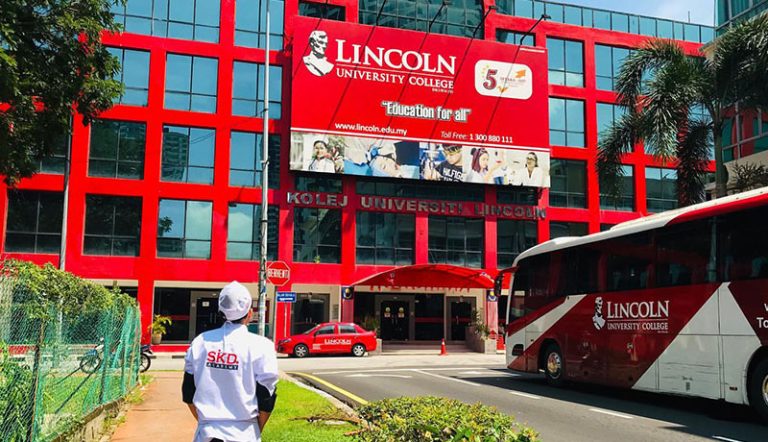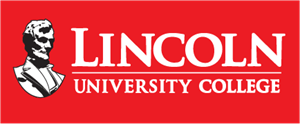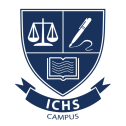Lincoln University College - Malaysia
Founded in 2002 and recognized by the Malaysian Ministry of Higher Education, Lincoln University College (LUC) has established itself as a leading private institution in Malaysia, offering a wide range of programs with a strong emphasis on quality, innovation, and global relevance. The Bachelor of Medicine and Bachelor of Surgery (MBBS) program is one of its flagship courses, designed to produce highly competent, compassionate, and ethical medical professionals.
The MBBS curriculum is developed in accordance with international medical education standards, integrating clinical exposure, problem-based learning, and modern teaching methodologies. Students benefit from the expertise of experienced faculty members and access to advanced healthcare facilities for hands-on training.
Key Highlights of the MBBS Program at LINCOLN:
- Duration: 5 years full-time, divided into pre-clinical and clinical phases.
- Curriculum: Combines basic medical sciences, clinical skills, and research training.
- Early Clinical Exposure: Students engage in patient care from the early stages of the program.
- Globally Recognized Degree: Approved by the Malaysian Medical Council (MMC) and listed in the World Directory of Medical Schools.
- State-of-the-Art Facilities: Advanced simulation labs, anatomy suites, and affiliated teaching hospitals.
- Multicultural Learning Environment: Exposure to diverse patient populations and healthcare systems.

Awarding Body

- Duration : 5 Year
- Fees :
International Recognition and Global Opportunities
Why Choose LINCOLN University for Medicine?
Facilities and Campus Life
The MBBS degree from Lincoln University College is recognized by several international medical bodies and is listed in the World Directory of Medical Schools (WDOMS):
- USMLE (USA)
- PLAB (UK)
- AMC (Australia)
- ERPM (Sri Lanka)
- FMGE (India)
With Malaysia’s strong reputation in medical education, students gain a globally competitive edge, opening pathways for postgraduate studies, international internships, and career opportunities in various countries.
- Proven Academic Excellence with a curriculum aligned to global medical standards.
- Experienced Faculty with extensive clinical and research backgrounds.
- Affordable Tuition Fees without compromising quality of education.
- International Student Support including visa guidance, accommodation assistance, and cultural integration programs.
- Strategic Location in Malaysia, offering a safe, modern, and student-friendly environment.
- Strong Clinical Partnerships with recognized hospitals for practical training.
Lincoln University College offers a vibrant campus equipped with:
- Modern Medical Laboratories for anatomy, biochemistry, physiology, and microbiology.
- Clinical Skills Labs with simulation mannequins for hands-on practice.
- Digital Library Resources with access to leading medical journals and research databases.
- Comfortable student hostels with Wi-Fi, study areas, and recreational facilities.
- Sports & Fitness amenities, cultural clubs, and student organizations to promote a balanced lifestyle.
The multicultural campus environment allows students from diverse backgrounds to collaborate, learn, and grow together.
Programme Structure
The MBBS programme at Lincoln University College spans five years and is divided into two phases: Pre-Clinical (Years 1–2) and Clinical (Years 3–5). The pre-clinical phase builds a strong foundation in anatomy, physiology, biochemistry, pathology, microbiology, pharmacology, and community medicine through lectures, tutorials, and simulation-based learning. In the clinical phase, students undertake hospital-based training across core disciplines such as internal medicine, surgery, obstetrics and gynaecology, paediatrics, psychiatry, orthopaedics, emergency medicine, and family medicine. This structured approach combines theoretical knowledge with hands-on patient care, ensuring graduates are well-prepared to meet the demands of modern medical practice.
Phase I: Pre-Clinical (Years 1–2)
- Anatomy
- Physiology
- Biochemistry
- Pathology
- Microbiology
- Pharmacology
- Community Medicine
Phase II: Clinical Training (Years 3–5)
- Internal Medicine
- Surgery
- Obstetrics & Gynaecology
- Paediatrics
- Psychiatry
- Orthopaedics
- Emergency Medicine
- Family Medicine
Throughout the course, students participate in clinical rotations, case discussions, research projects, and community health outreach programs to develop both medical knowledge and interpersonal skills.
